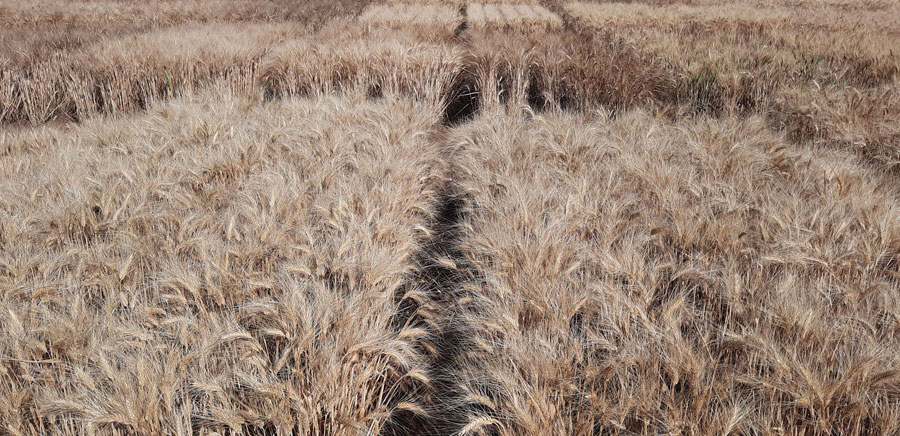Key points
- University of Southern Queensland durum wheat pre-breeding program has identified lines with superior yields and greater resistance to crown rot disease
- These lines were tested in association with durum breeding programs nationally and will help reduce the risk of growing durum wheat
Durum wheat often commands a price premium over bread wheat, but industry potential is limited by durum’s Achilles heel − its greater vulnerability to crown rot.
Australia is an important producer of the high-quality durum or pasta wheat sought by international buyers, with up to 500,000 tonnes produced annually, mainly in South Australia and the northern and Riverina regions of New South Wales.
But the lack of crown rot resistance in current durum varieties remains an industry risk and inhibitor. Access to high-yielding export-quality durum varieties with improved resistance or tolerance to crown rot would likely encourage growers to plant more durum.
Yield loss
Crown rot disease severity is exacerbated by water stress, particularly when this occurs late in the growing season. Yield losses due to crown rot are expected to increase as Australian grain growing regions become hotter and drier in the future.
Consequently, with an estimated yield loss of 50 to 60 per cent under conditions favourable to the disease, growers have placed a high priority on the development of cultivars with improved crown rot resistance.
GRDC-invested research led by the University of Southern Queensland (USQ) between 2013 and 2018 produced durum lines with different sources of resistance. The lines, mainly obtained through crosses between partially resistant bread wheat lines and durum varieties, underwent multiple years of crown rot assessments at the NSW Department of Primary Industries in collaboration with Dr Steven Simpfendorfer.
Testing lines
Renewed GRDC investment means these lines are now being tested with and without crown rot pressure to determine the difference in yield loss due to crown rot disease, as well as to select lines that are high-yielding under ideal conditions and also less vulnerable to yield loss under crown rot disease pressure.
The tolerance trials were conducted at six sites during 2019 and 2020 − Tosari in Queensland; Narrabri, Spring Ridge and Tamworth in NSW; and Roseworthy and Kapunda in South Australia. The Tamworth, Narrabi and South Australian sites were under the supervision of durum breeders Dr Gururaj Kadkol, Dr Tom Kapcejevs and Dr Jason Able, respectively.

Durum lines with superior yield in the presence of crown rot have already been identified at all sites. This University of Southern Queensland line at Tamworth, NSW, is uninoculated, left, and inoculated with crown rot, right. Photo: Anke Martin
The trials compared 100 pre-breeding lines plus six durum and five bread wheat standards. The pre-breeding lines include selected USQ lines and International Maize and Wheat Improvement Center lines from Dr Amer Dababat’s program in Turkey. At the end of the season, researchers measured yield and the percentage of crown rot browning to identify lines with the genetic ability to yield despite the presence of the disease. Results will be analysed by Queensland Department of Agriculture and Fisheries senior biometrician Jodine O’Connor as part of GRDC’s Statistics for the Australian Grain Industry program.
In 2019, lines with reduced browning and superior yield responses compared with current durum varieties were identified at all sites. These and other lines were tested again in 2020.
The best lines will be provided to the durum breeders for further development into varieties. Researchers anticipate that these lines will reduce the risk of growing durum wheat, enabling expansion of the durum industry and a consistent supply to the export market.
More information: Associate Professor Anke Martin, 07 4631 2261, anke.martin@usq.edu.au

























































